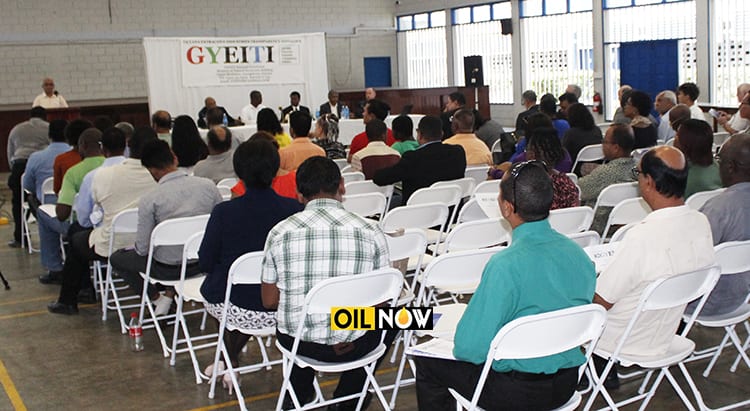The Extractive Industry Transparency Initiative (EITI) requires that all implementing countries, one of which Guyana hopes to soon become, provide a comprehensive reconciliation of company payments and government revenues from the extractive industries. EITI believes an understanding of company payments and government revenues can inform public debate about the governance of the extractive industries.
In addition to the comprehensive disclosure of taxes and revenues, EITI Requirements related to revenue collection include sale of the state’s share of production or other revenues collected in kind, Infrastructure provisions and barter arrangements, transportation revenues, among others.
In advance of the reporting process, the Multi-Stakeholder Group (MSG) is required to agree which payments and revenues are material and therefore must be disclosed, including appropriate materiality definitions and thresholds. Payments and revenues are considered material if their omission or misstatement could significantly affect the comprehensiveness of the EITI Report.
Jason Calder, Country Representative of the Carter Centre in Guyana, said information on payments include companies reporting what they pay to the government and the government reporting what it receives from companies. “An accounting entity then comes down, and using international accounting practices will reconcile those figures…,” he stated at a public meeting in Georgetown, Guyana, on Thursday.
In each implementing country, an MSG comprised of representatives from government, companies and civil society is established to oversee EITI implementation. Although the mandate of the MSG varies across countries, the MSG is the main decision-making body responsible for EITI implementation.
The Guyana EITI (GYEITI) MSG was launched on February 15, 2017. The South American country will formally submit its application for EITI candidature in August and is expected to be accepted as an EITI candidate before the end of the year.



